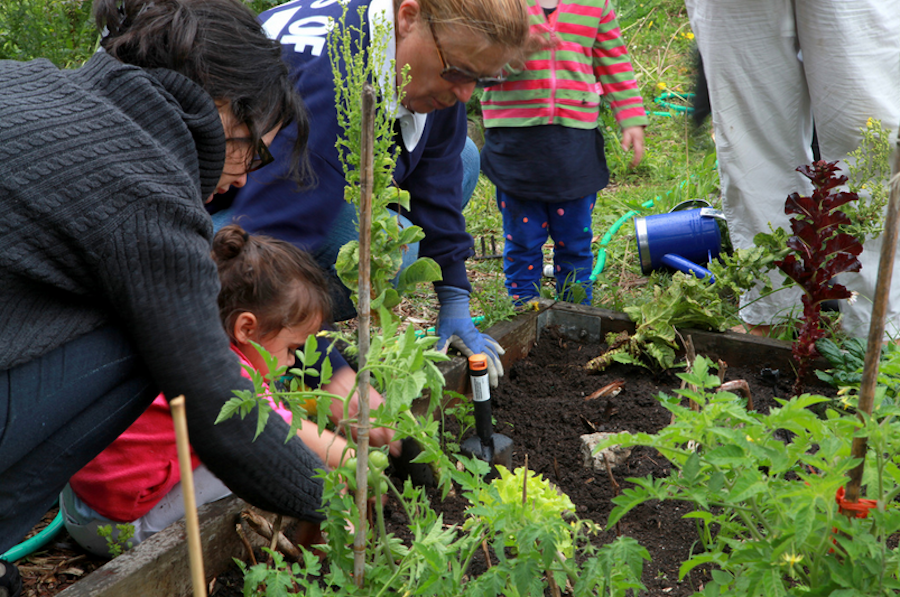In January, Shareable, the Sustainable Economies Law Center (SELC), and the Richmond Grows Seed Library launched the U.S.-based Save Seed Sharing campaign. A response to legal crackdowns on seed libraries, the campaign was created to raise awareness about seed sharing and protect seed libraries through new regulation.
Since then, a lot has happened in the world of seed sharing: thousands of people across the U.S. have signed a petition to support seed sharing; seed sharing campaigns have emerged in several cities; seed sharing legislation has been introduced in three states; Shareable published an in-depth feature on the seed sharing issue; and more. Below are the campaign's six big wins so far:
1. Over 7,900 People Sign the Save Seed Sharing Petition

The Save Seed Sharing petition now has over 7,900 signatures, with more coming in every day. These are people from all over the U.S. who have signed on to voice their support of sharing seeds. The signatures reflect to regulators and law makers that seed sharing is an important issue with growing support.
The seed sharing movement is gaining momentum, but local campaigns face resistance from the commercial seed industry. By signing the petition, you can show support of legislation that protects seed sharing. When signing, signers are given the choice to get updates about the campaign.
“It’s important for people to continue to show their support by signing the petition so we can tell them how to engage with the legislators in their state,” says SELC staff attorney Neil Thapar.
2. Articles and Resources
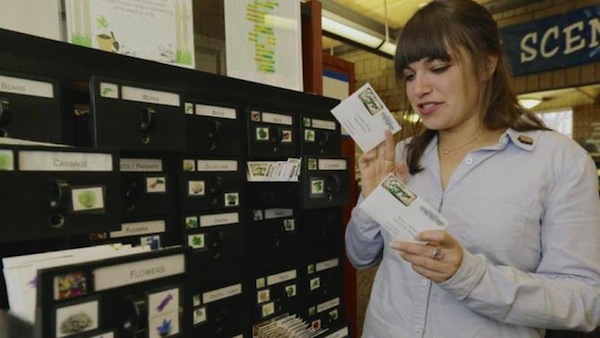
To spread the word about the Save Seed Sharing campaign, Shareable has published numerous articles detailing the issues, providing resources to get involved in the seed sharing movement and start a seed sharing campaign in your town, and overviews of the legal progress around seed sharing in different states.
In February, Shareable published “Seed Libraries Fight for the Right to Share,” an in-depth feature story about the issue. Written by award-winning journalist and author Christopher D. Cook, the article is an overview of seed sharing, from the initial legal crackdown on a seed library in Mechanicsburg, Pennsylvania, to the scope of the seed industry’s market control, and the movement to legalize seed sharing.
As word spreads about the Save Seed Sharing movement, SELC continues to field calls from individuals and organizations around the U.S. that are interested in protecting seed sharing in their city or state.
3. Support for Seed Sharing at a Municipal Level
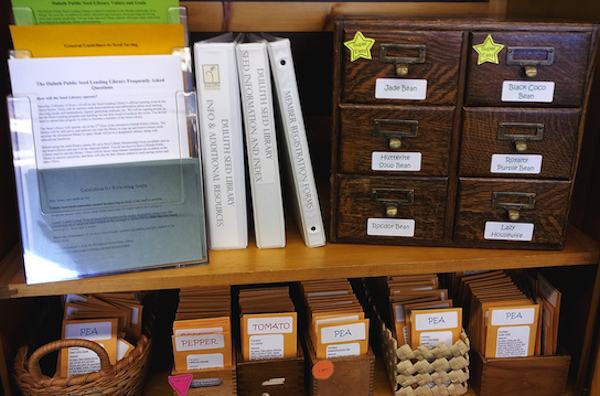
In December, the city council in Duluth, Minnesota signed a resolution supporting seed saving and sharing in the city. The resolution was introduced to State Senator Roger Reinert, who authored a seed sharing bill in the state senate. Similar municipal-level resolutions have been passed in Minneapolis and St. Paul, as well as in Omaha, Nebraska.
4. Seed Sharing Legislation at the State Level
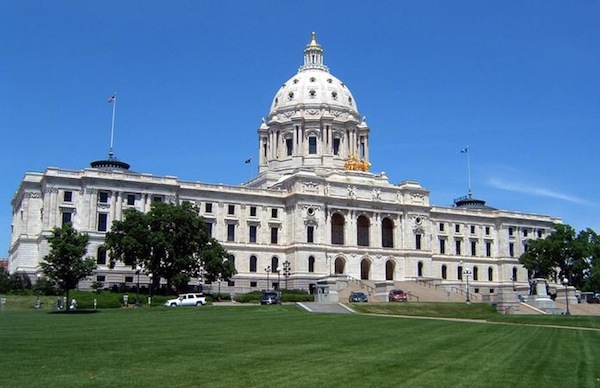
In Minnesota, Senator Reinert introduced SF 132, a bill exempting certain organizations from state seed law, to the state legislature. Designed to protect seed sharing, the bill was introduced, withdrawn due to concerns from seed sharing organizers about the language of the bill, modified, and has been reintroduced as SF 949.
In a hearing last week in the Jobs, Agricultural, Rural Development committee, the bill didn’t get voted on because seed industry representatives had concerns about the language. At this point, both sides are in continuing negotiations about the bill. Thapar says seed sharing organizers are hopeful that Senator Reinert, who introduced the bill, is going to stick to the principles that underpin the legislation.
“There will likely be another hearing later this month to see if it will move forward or not,” he says. “We’ll negotiate then whether or not to make changes, and if so, which changes we will make.”
Illinois also has legislation on the state level. An attorney who works with the Illinois Stewardship Alliance contacted SELC and reached out to a legislator who has seed libraries in his district to have him introduce the legislation. They have a hearing this week in the Agriculture committee. The seed industry is involved with negotiations there as well.
In Nebraska, seed sharing legislation has been introduced at the state level and, as in Minneapolis and Illinois, seed sharing organizers and legislators are also in the process of negotiating with the state seed industry.
5. Mobilizing Around Seed Sharing
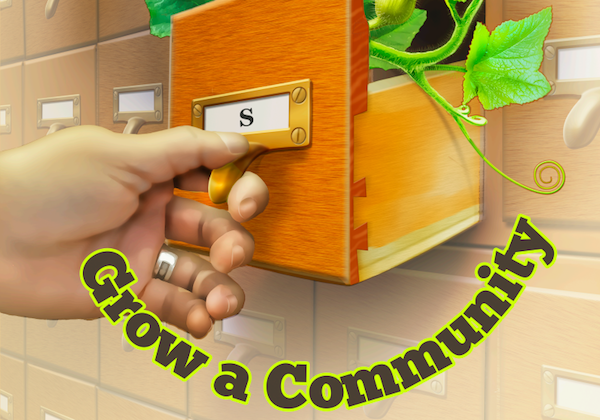
While there are now over 400 seed libraries in the U.S., until the crackdown in Pennsylvania, there was no organized effort to protect seed sharing. That has changed. There have been several events to bring seed library supporters together, including a Seed Summit at the National Heirloom Expo in Santa Rosa, Ca.
From May 3-6, the International Seed Libraries Forum in Tucson, Arizona brings together seed activists from around the world. The goal is to “further coalesce efforts by public libraries, non-profits, universities, and food banks to increase the quality and diversify the means of managing community seed resources with free or affordable access to low-income households.” The forum will look for ways seed libraries can collectively address recent regulatory challenges to their operations.

6. Non-Partisan Support
The threat to seed sharing touches people from all walks of life. It’s a non-partisan issue that brings together farmers, students, organic activists, sharing organizers, government representatives, longtime gardeners, parents, and more. As word spreads about the issues and, in particular, the fact that seed sharing may be regulated out of existence, people are moved to act.
“When [people] hear about how controversial the bills are, how difficult it’s actually been to get the language through, and that the American Seed Trade Association is actively opposing what we’re suggesting, they’re really surprised,” says Thapar. “This is now something that’s part of a larger context and part of a larger fight that’s going on between the privatization of seed and other natural resources versus open and commons-based access to what is a genetic resource for all of us.”
The concept of people having a right to share seeds with each other has what Thapar calls “a long legacy” behind it.
“It’s how we’ve bred and shared seed and developed agriculture for thousands of years,” he says, “but it contradicts a more recent notion and legal concept that we have property rights over certain natural resources, including seeds."
Thapar explains that the privatization of seeds has become such a normal concept today that we expect that people can own seed varieties and that, to a certain extent, the seed industry and the Departments of Agriculture feel more compelled to protect that right over the rights of people to freely share seeds with each other.
Get Involved
The best ways to show support for the Save Seed Sharing campaign are to sign the petition, start a seed library, or start a seed sharing campaign where you live. You can also get the big picture about what's happening by reading Shareable’s feature story about the issue, “Seed Libraries Fight for the Right to Share.”
##
Top photo: d-olwen-dee (CC-BY-20). Follow @CatJohnson on Twitter
